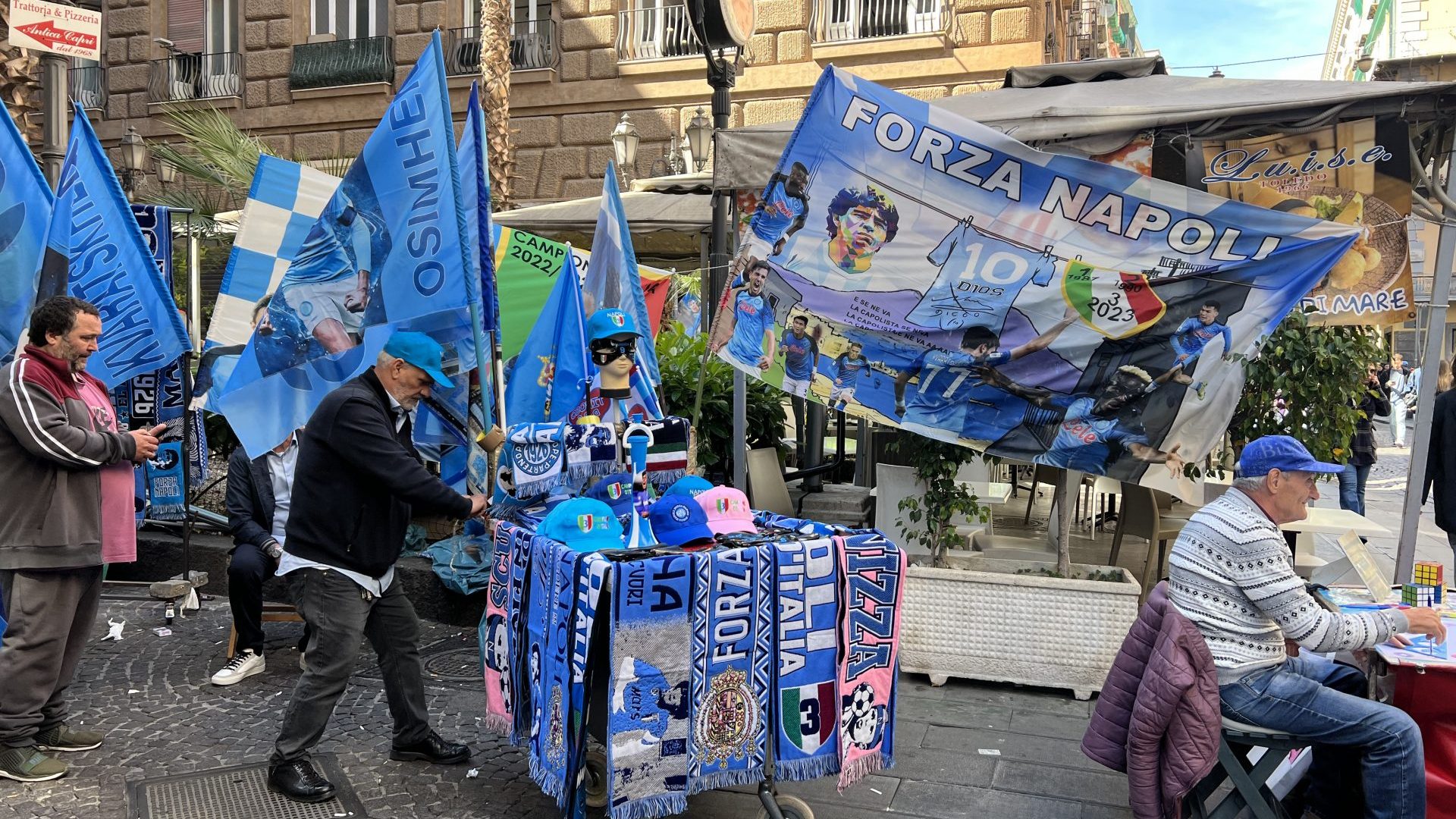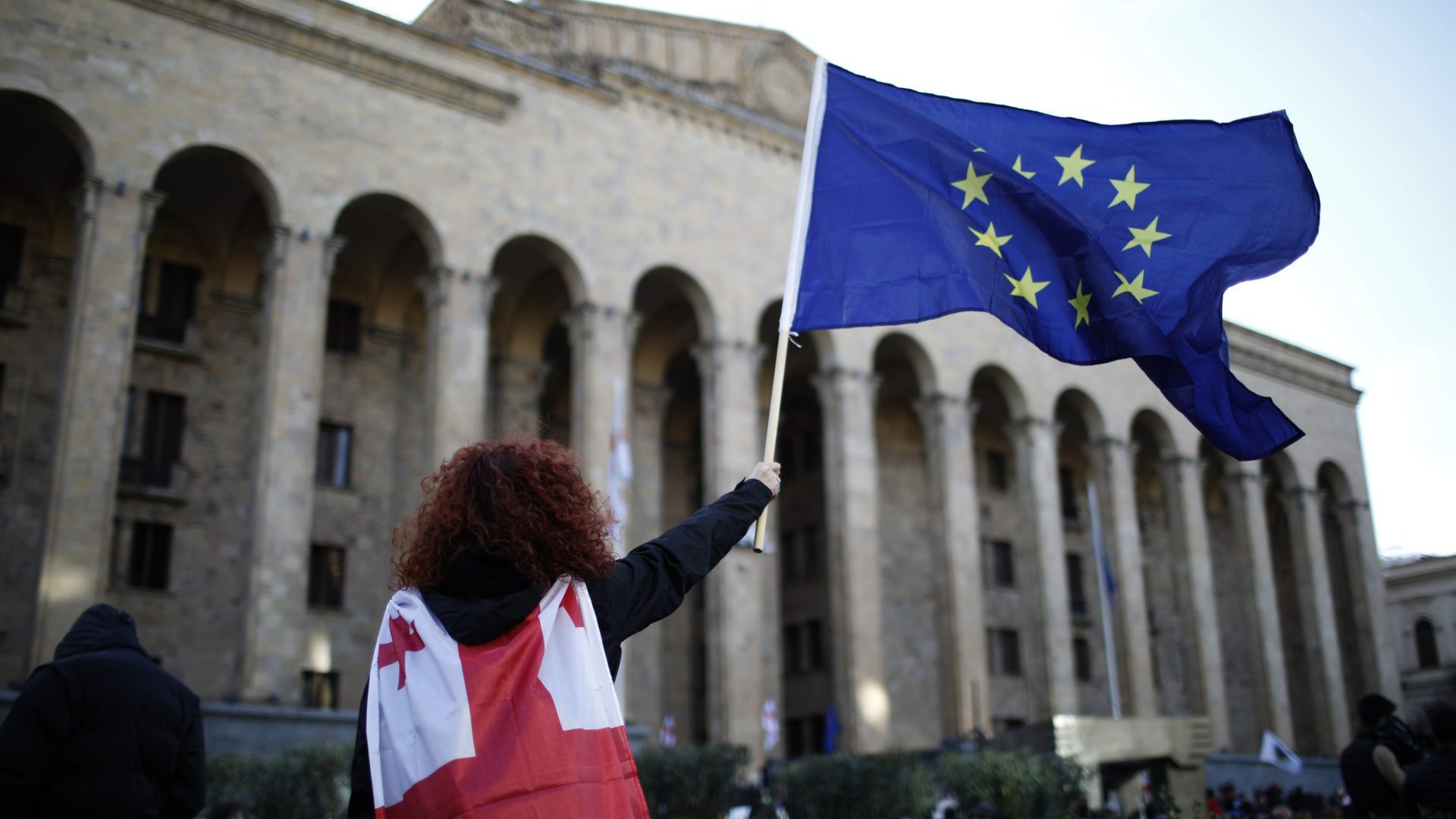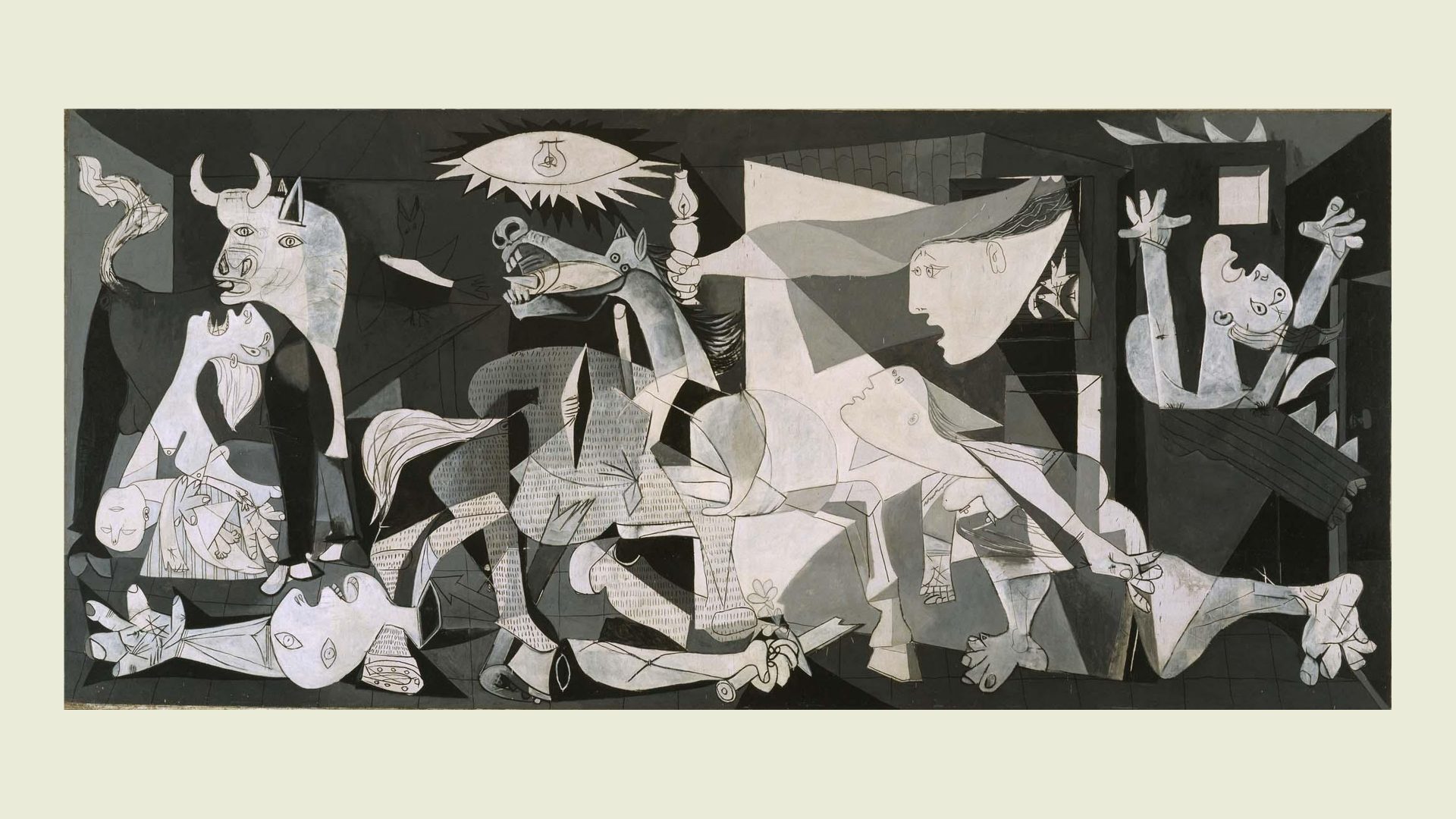We Neapolitans are a superstitious lot. We are fearful of the dark shadow of hubris, alarmed by the mere thought of pride or good fortune. Perhaps it is a legacy of the Greeks, who were the earliest settlers of this ancient city, who believed that displays of mortal pride were offensive to nature and the divine, meriting punishment from the gods.
This week, all such caution was thrown to the wind. Naples at last embraced the notion that superstition cannot derail mathematics and the Scudetto – the Serie A national football league trophy – is likely theirs, win, lose or draw the last games.
It is 33 years since Napoli bagged national football’s greatest prize thanks to the maverick, attacking midfielder, Diego Maradona – the other God still worshipped in Naples. He propelled the southern Italian team to victory in 1990, nearly two generations ago.
On Sunday, with Napoli a colossal 17 points clear at the top of the table, the city’s fans took to the streets and exploded in a clamorous, untrammelled and ear-splitting cacophony of car horns, fireworks and air hooters as at last, their club scored after a slow first half.
Blue smoke bombs billowed from balconies, crowds thundered “Na-po-li” and waiters and shopkeepers left their posts to make conga lines, singing and dancing in the streets as a sea of bangers detonated in deafening waves at ground level, rockets directly above. So anxious were the city’s authorities about Neapolitans’ legendary love of incendiary festivities that access roads to Mount Vesuvius were closed off when rumours reached police that fans were planning a fake eruption.
Then, just seven minutes from time, the city of Naples fell into an eerie, dismayed silence, as Salernitana equalised. The trophy celebrations were postponed for another day.
Despite the eleventh-hour disappointment, Napoli are now 18 points ahead of their nearest rivals, Lazio, who would need to win all their games – and Napoli lose all theirs – for fortune to tip the other way.
With six games to go before the end of the season, not even the most diehard and optimistic of supporters could have imagined the seamless chain of triumphs that have seen Napoli win 25 of 31 games, drawing four and losing just three.
In the Case Nuove district of central Naples, a stone’s throw from Piazza del Mercato, fans have been building a meticulous, if disquieting pop-up cemetery of graves and coffins marked with the colours of Inter, AC Milan and all the rich and powerful teams conquered this year by a marauding Napoli.
Italy is, of course, a nation split historically along a north-south economic divide and football is no different. A win for Napoli, with Lazio as runners-up, also means a fillip (and the middle finger) from the whole of southern Italy to the rest.
It is also too often forgotten that Italy was only unified in 1861 and that today every region retains and hotly defends its own dialect and cuisine, traditions and customs. Scratch the surface and most Neapolitans will tell you they feel Neapolitan first and Italian second. This fierce sense of identity is expressed eloquently in the passion for football and is highlighted by the fact that Naples is one of only a few great European cities represented by just one club.
Preparations for victory began in earnest more than a fortnight ago and every telegraph pole, balcony and windowsill is festooned in flags and blue and white streamers. Thousands of blue and white football jerseys have been pegged to the clothing lines traditionally strung across the city’s narrow alleyways, most with Maradona’s iconic Number 10 jersey in pride of place.
In the historic Quartieri Spagnoli, life size cut-outs of the 11-strong Napoli team have become magnets for swooning fans desperate for selfies to a backdrop of steps and stairways painted in the green, white and red of the Italian flag – and the coveted trophy.
Every day, thousands of visitors have come to pay their respects. They mutter a prayer in hope of victory in the open-air mausoleum that’s dedicated to Maradona, who is still subject of endless Instagram and TikTok videos shot in front of his effigy.
Maradona’s face has been ubiquitous in Neapolitan graffiti and murals for three decades, but it took this unforgettable season for the city’s street artists to crown him with the golden bishop’s mitre synonymous with Naples’ patron Saint Gennaro.
Signed in 1984 from Barcelona despite an already well documented fragile and volatile temperament, Maradona said he felt at home in Naples from day one. His former club in Argentina was the team of the working class while playing in Spain, he was made to feel an outsider, jeered for his dark south American skin.
Over seven years in Naples, he managed to help the under-dog Italian side inch its way up the League table to clinch the only two titles in its history. This was a terrible period for Neapolitans whose daily lives were riven by warring Camorra clans, soaring youth unemployment and a local banking crisis. An earthquake which had killed more than 2,600 people and made many more homeless in 1980 sparked a renewed wave of Mafia activity as tenders for reconstruction were corrupted and works delayed.
Maradona too had grown up in extreme poverty, football a tonic against existential ills and yet the Argentinian was not just loved for his prowess: his rebellious, anti establishment and mouthy attitude, coupled with personal struggles and an enmeshment with the Mafia, somehow resonated with Neapolitans’ own historic battles and view of themselves and their city.
This time around however, Napoli’s impending triumph is thanks to the leadership of the club’s manager, Luciano Spalletti, and clever acquisitions by the club’s sporting director, Cristiano Giuntoli. Their brilliant, eclectic and multicultural mix of previous unknowns include the Georgian winger, Khvicha Kvaratskhelia, whose thrilling play has seen him compared to Maradona and earned him the nickname Kvaradona, the central European midfielders, Zieliński and Stanislav Lobotka and Nigerian forward, Victor Osimhen, Serie A’s top scorer now targeted by Arsenal. Together, they have propelled Napoli to become one of Europe’s top teams, known for their own style of ferocious, attacking style football.
Spalletti, not a Neapolitan himself, told disappointed fans on Sunday that the team had desperately wanted to bring them their long awaited joy and fulfil their dreams.
“We wanted to, we really wanted to do this. We represent their dreams and it’s right that their dreams be realised by us. But look at it this way, we are simply postponing festivities, lengthening celebrations, and the coming joy. I know we will win those two points. I am absolutely sure of it.”
Neapolitans must now rely on the old adage that all good things come to those who wait.



